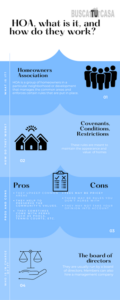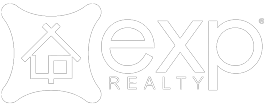I am relatively new in the real estate world. I’m still learning the ropes of the business and how it works. Every time I looked at a listing description, more often than not said “HOA”. To be honest, I had no idea what it was, but I assumed it had to be something important; it was essentially mentioned on every listing some said they had it, some not. Later I found out it means Home Owners Association. Today, I would like to give you some insights into what that means, how they work and how are they developed in the first place. Let’s find out!
Okay, now we know it means Home Owners Association, but what is it?
HOA is a group of homeowners in a particular neighborhood or development that manages the common areas and enforces certain rules that are put in place. The HOA can be run by the homeowners themselves or they can hire a company to manage it for them. There are typically fees associated with being part of an HOA which go towards maintaining the common areas.
How do they work?
The HOA creates and enforces rules known as covenants, conditions, and restrictions (CC&Rs). These rules are meant to maintain the appearance and value of the homes and common areas in the development. The HOA is typically responsible for things like maintaining the landscaping, repairing sidewalks, and painting exteriors. They may also have rules about things like what color you can paint your house, whether or not you can have a fence, and how many cars you can park in your driveway.
Now that we know what an HOA is and how it works, let’s talk about the pros and cons.
PROS AND CONS
Some people view HOAs as being overbearing and restrictive. Others see them as a necessary evil that helps to keep property values high and neighborhoods looking nice. Here are some of the pros and cons of living in a community with an HOA:
PROS:
– HOAs can help to keep property values high by maintaining the appearance of the development.
– They help to preserve communities’ values.
-A lot of the time, the fees that you pay (Yes, you have to pay) come with cool amenities such as Tennis Courts, Landscaping, parking lots, etc. Some HOA fees may cover the cost of trash and other utilities.
CONS:
– HOA fees can be expensive, sometimes hundreds of dollars per month.
– The HOA may have rules that you don’t agree with or that are too restrictive.
– You may not have a say in how the HOA is run or what rules they create.
Who is in charge of your HOA?
The HOA is typically run by a board of directors who are elected by the homeowners in the development. The board members serve staggered terms so that not all of them are up for election at the same time. This helps to ensure that there is some continuity from one year to the next. The board members may hire a professional property management company to handle the day-to-day operations of the HOA.
Do you have to be a part of the HOA?
If you own a home or condominium in a development that has an HOA, then you are typically required to become a member and pay dues. The HOA may also charge fees
What legal powers does an HOA hold?
The HOA is a legal entity that has the power to enforce the CC&Rs. This means that they can issue fines, put liens on properties, and even foreclose on homes if the homeowners do not pay their dues or follow the rules. The HOA also has the power to sue homeowners who violate the CC&Rs
Conclusion
HOAs can be a great way to keep a community looking nice and preserve property values. However, they can also be restrictive and expensive. You should do your research before buying a home in a community that has an HOA to make sure that you are comfortable with the rules and the fees.

